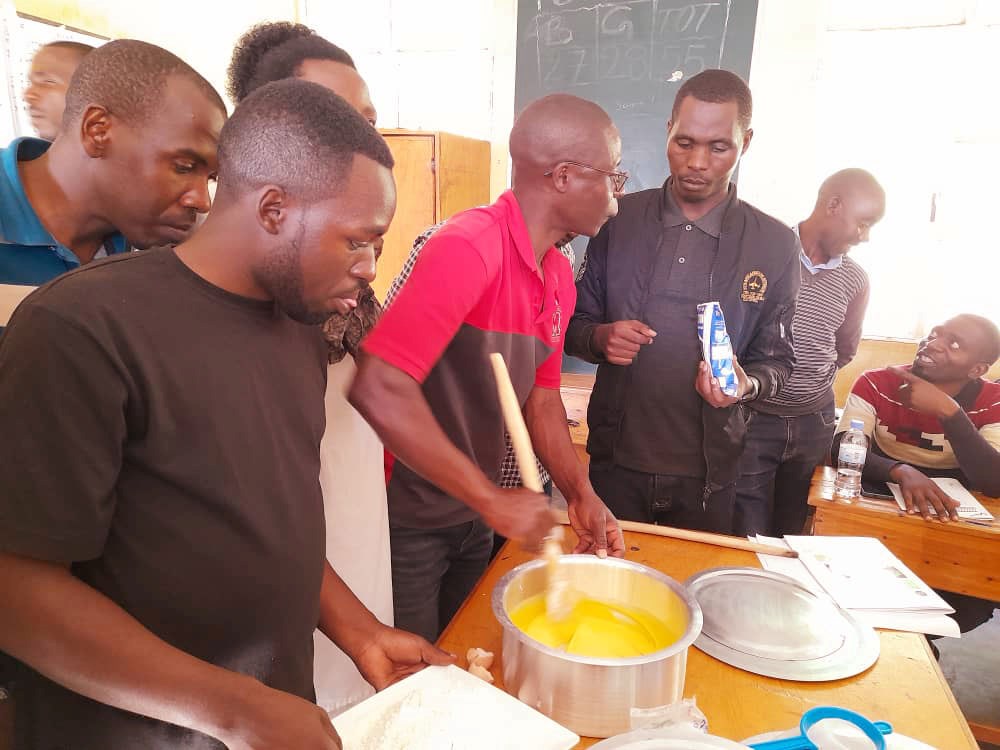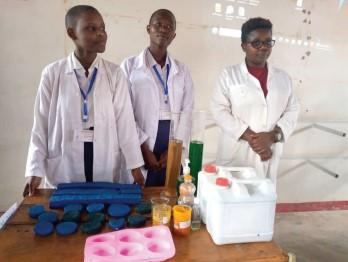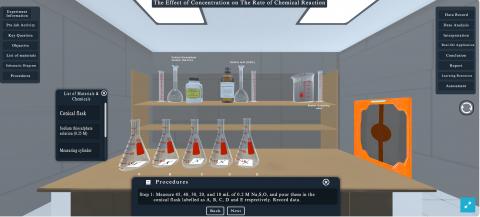
The University of Rwanda-College of Education is partnering with the Ministry of Education through Rwanda Basic Education Board (REB) to enhance teacher effectiveness for improving student learning. This is in the framework of the implementation of the Rwanda Quality Basic Education for Human Capital Development (RQBECD) project. To do so, both institutions have undertaken a series of initiatives which are aimed to support professional development of Mathematics and Science teachers, as per the project’s sub-component 1.2. In this regard, the Project-Based Learning (PBL) has been introduced among other innovative learner-centered methods in a quest to achieve this objective.
What is PBL ?
Project-Based Learning (PBL) is a teaching and learning approach in which complex real-world problems are used as the vehicle to promote students’ learning of concepts and principles as opposed to direct presentation of concepts and facts.
Why Project-Based Learning in Rwandan Education system ?
The Project-Based Learning (PBL), as one of the learner-centered teaching approaches, was proposed by the RQBEHCD project team leaders as a sustainable solution that could address identified problem in teaching and learning of Mathematics and Science. PBL has been chosen as it is at a high level of inquiry that can easily promote Rwandan CBC competences.
“One area of innovation in Mathematics and Science Education is PBL Modules will be implemented in lower secondary grades (S1-S3), beginning with 63 schools that 16 TTCs,17 Model Schools, and 30 Science Schools (one per district),” noted Associate Professor Pheneas Nkundabakura who is the Team Leader of RQBEHCD sub-component 1.2.
According to him, PBL is a teaching method in which students learn by actively engaging in real-world and meaningful projects. In Project-Based Learning, students work on a project over an extended period–from a week up to a trimester – that engages them in solving a real-world problem or answering a complex question.
What is the importance of PBL as an approach of teaching ?
Students develop their knowledge and skills by creating a public product or presentation for a real audience. As a result, students develop deep content knowledge as well as critical thinking, collaboration, creativity, and communication skills. All these skills are emphasized in the CBC.
PBL Modules are aligned to the Rwanda CBC
UR-CE facilitators in collaboration with REB staff, developed PBL modules and or projects. Developed modules included Water Cleaning project, Saponification project, School Kitchen Garden, Beeswax-based Products (body lotion, shoes polish, and candles), Food Processing, Robotics Applications, 3D Printing Projects, Solar Energy and Solar Lantern, House Electrical Installation Project, and Micro Bit-projects. These projects were reviewed and aligned with the Rwanda CBC.
Maths and Science Teachers’Training on the PBL approach
The training of teachers that will facilitate the implementation of these projects in the schools has kicked off on the 20th September 2022 with the first phase to end on the 30th October 2022. Participants are split into 2 groups : one group of those who teach Mathematics and Physics, and the second group was made of those who teach Biology and Chemistry.
"The first group as trained on how to programme robots and how to print objects in 3 dimensions. They were also trained on solar cells and one important sensors. They are also shown on how to make an installation of electricity in a house," said Associate Professor Nkundabakura.
The project has purchased and distributed the packages of materials to facilitate effective teaching of Mathematics and Science. Those packages of materials included digital platform and Office 365 license (1 per trained teacher), laptops and projectors (1 laptop per trained teacher and one projector per school), formative assessment tools (Voting cards, plickers, Show-me boards), and Maths and Science kits (1 kit per school).

